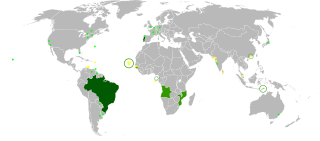
The Crown Prosecution Service (CPS) is the principal public prosecuting agency for conducting criminal prosecutions in England and Wales. It is headed by the Director of Public Prosecutions (DPP).

In the United States, a district attorney (DA) is the chief prosecutor for a local government area, typically a county. The exact name of the office varies by state.

A prosecutor is a legal representative of the prosecution in countries with either the common law adversarial system, or the civil law inquisitorial system. The prosecution is the legal party responsible for presenting the case in a criminal trial against an individual accused of breaking the law. Typically, the prosecutor represents the government in the case brought against the accused person.

The Judiciary of the Hong Kong Special Administrative Region is the judicial branch of the Hong Kong Special Administrative Region. Under the Basic Law of Hong Kong, it exercises the judicial power of the Region and is independent of the executive and legislative branches of the Government. The courts in Hong Kong hear and adjudicate all prosecutions and civil disputes, including all public and private law matters.

In England and Wales, a magistrates' court is a lower court which holds trials for summary offences and preliminary hearings for more serious ones. Some civil matters are also decided here, notably family proceedings. In 2015, there were roughly 330 magistrates' courts in England and Wales, though the government was considering closing up to 57 of these. The jurisdiction of magistrates' courts and rules governing them are set out in the Magistrates' Courts Act 1980.

The Attorney General of Mexico is the head of the Attorney General's Office and the Federal Public Ministry, an institution belonging to the Federal Government's executive branch that is responsible for the investigation and prosecution of federal crimes. The office is governed mainly by the Constitution of Mexico and the Organic Law of the Attorney General's Office. The Attorney General is a member of the President's Cabinet.

The Attorney General of the Union, (or Solicitor General, is a cabinet-level position in the Brazilian government charged with advising the Executive Branch and representing the federal government of Brazil in legal proceedings [legally known as the Union ]. The Attorney General is defined under Article 131 of the Brazilian Constitution as one of the essential functions of Brazilian judicial administration, along with the roles performed by the judicial branch, the Prosecutor's office, the public defenders and private lawyers. The current Attorney General is Grace Mendonça.

In Brazil, the Civil Police is the name of the investigative state police forces.

The Public Prosecutor's Office is the Brazilian body of independent public prosecutors at both the federal and state level. It operates independently from the three branches of government. It was once referred by former president Michel Temer as a "Fourth Branch". The Constitution of 1988 divides the functions of the Public Prosecutor's Office into three different bodies: the Public Procurator's Office, the Public Defender's Office and the Public Prosecutor's Office itself, each one of them an independent body. In addition to that, the new Constitution created the Courts of Account, also autonomous in its functions.

The Ministry of Justice is the Portuguese government ministry responsible for the administration of the judiciary system. It is headed by the Minister of Justice.
The Procurator General of Macau (PG) is the senior law officer of Macau. The PG replaced the Attorney General of Macau in December 1999 in the new Government of Macau. The PG reports to the Secretariat for Administration and Justice.

The Prosecutor General of the Republic is the head of the Brazilian Federal Prosecution Office, an autonomous agency in charge of criminal prosecution and the defense of society in general. The Prosecutor General heads a group of independent prosecutors, who work to investigate and prosecute criminal, labor, and civil offenses committed against society. It is a position appointed by the President of the Republic and the nomination must be approved by the Federal Senate.

Rodrigo Janot Monteiro de Barros is a Brazilian jurist who served as the General Prosecutor of Brazil from 2013 to 2017.
In French law, the ministère public or le parquet is the authority charged with defending the interests of society and of the application of law. It is primarily made up of magistrates, but is sometimes represented by other persons such as police officials. Its magistrates can be referred to as "standing" magistrates, as opposed to magistrats du siège. Its closest equivalent in some English-speaking countries is the director of public prosecutions and the attorney general in others.

Jean Alain Rodríguez Sánchez is a Dominican lawyer and politician who is the current Attorney General of the Dominican Republic. He was appointed to the position of President Danilo Medina. Before becoming Attorney General, Jean Alain served as the executive director of the CEI-RD (2012-2016).Rodríguez Sánchez is a member of the Central Committee of the Dominican Liberation Party, the current governing political party in Dominican Republic.

The National Council of the Magistracy, is the Dominican constitutional body responsible for appointing judges of the Supreme Court, the Constitutional Court and the Superior Electoral Court of the Dominican Republic.

The Spanish Attorney General, officially, Attorney General of the State(Spanish: Fiscal General del Estado), is the head of the Prosecution Ministry, the body with functional autonomy in the Judiciary, that has constitutionally been entrusted with the promotion of the action of the justice in defense of the legality, protecting citizens rights and the public interest, and ensuring the independence of the courts and to seek the satisfaction of the social interest.
The State Prosecutor’s Office is a public organ connected to the Executive branch that aims to ensure an efficient management of public assets by representing the State as a legal entity in both domestic and international disputes and by giving legal counsel.

















